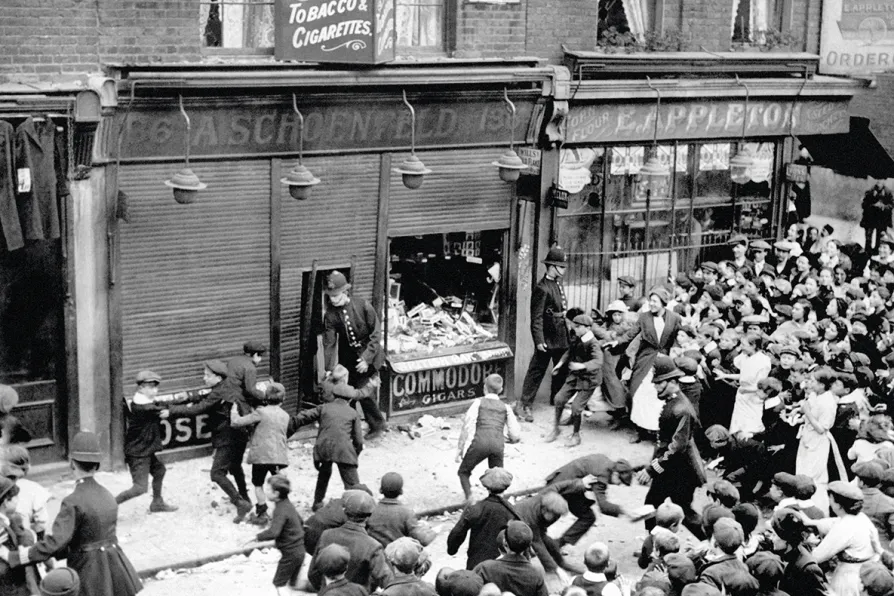Labour prospects in May elections may be irrevocably damaged by Birmingham Council’s costly refusal to settle the year-long dispute, warns STEVE WRIGHT
A history of jingoism shows the importance of anti-war protest
KEITH FLETT sees some unpleasant echoes of the past in today’s drumbeats for war

 A mob loots suspected German shops in east London, 1915
A mob loots suspected German shops in east London, 1915
OFCOM has taken the decision to withdraw the licence of Russia Today to broadcast in Britain.
The regulator’s view is that it is a conduit for pro-Putin propaganda in respect of Ukraine, but it can be argued that the BBC functions at least partly as a pro-Nato broadcaster.
Between the two there is little space for those who oppose imperialist wars, whether launched and organised by East or West.
Similar stories

While Hardie, MacDonald and Wilson faced down war pressure from their own Establishment, today’s leadership appears to have forgotten that opposing imperial adventures has historically defined Labour’s moral authority, writes KEITH FLETT

From McCarthy’s prison cells to London’s carnival, Jones fought for peace and unity while exposing the lies of US imperialism, says ROBERT GRIFFITHS, in a graveside oration at Highgate Cemetery given last Sunday

KEITH FLETT looks back 50 years to when the Iron Lady was elected Tory leader…











